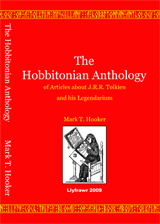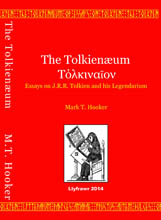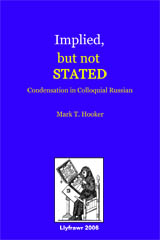
Also from this author: 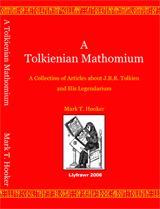
| 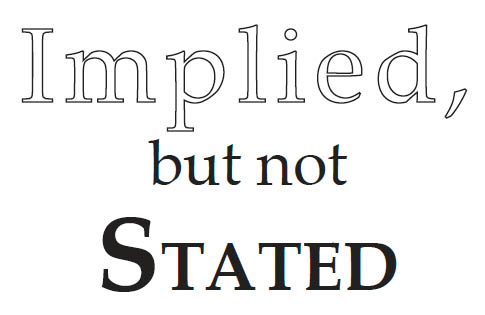
IntroductionThe goal of Implied, but not STATED is to teach advanced non-native students of Russian how to deal with new words produced through the process of condensation, which is very active, not just in modern Russian, but in all modern languages. Condensates are especially difficult for nonnative students to understand, because the meaning of the condensate is carried as much by what is implied by the context as it is by what is explicitly stated by the speaker. For the non-native students this is particularly difficult, because they are normally so fixated on each individual word, that they cannot draw on the context of the word to recover its meaning. The nature of Russian dictionaries makes looking up condensates very frustrating for non-native speakers, because condensates are very slow to make it into dictionaries, if they make it at all. Implied, but not STATED presents a series of models, describing how words and word collocations longer than three syllables (such as terms and verb frames) can be condensed in colloquial Russian. It then shows the student how to apply the models to recover the part(s) of condensed words or word collocations that are implied, but not explicitly stated by the speaker. The material in the book is based on communications theory and the role of redundancy, but it is aimed at providing a practical application of the theory to a broad audience. In addition to tools for recovering the meaning of condensates, the book provides rules of thumb for determining the relative stylistic markings of these neologisms so that students can use them properly themselves. Parallels to English are drawn whenever possible to help the students better assimilate the material. The inclusion of an answer key makes it suitable for self study as well as guided classroom use. Student critiques from the courses where this book has been used have been very positive about the material. “A course of this type was very much needed, and I hope it remains on the curriculum.” “I found it highly interesting, informative and useful.” “Well structured. Plenty of examples.” “This is the first course I've taken that really addresses colloquial Russian.” “I liked learning about condensates in general. Now I keep finding them in English.” “I liked learning about the ways things are carried in dictionaries and the way they change with time.” The approach used in this course is predicated on the perception that non-native students normally begin their studies of the language with Codified Standard Russian (CSR) [i.e. the way that Russians write, not the way they talk]. Therefore, Colloquial Russian (CR) is presented as a modification of CSR with which the student is already familiar. The course shows how CSR constructions are changed into colloquial constructions by the omission of elements from the CSR constructions. To a native speaker the omitted elements are implied by the remaining portion of the construction, but to a non-native student of the language these “missing” elements are a great source of confusion. The course presents a series of models to help the non-native student “reconstruct” more familiar CSR constructions from condensed colloquial variants. |
The models rely on the concept of syntactic zero (Ø). It is used in the models just like zero is used in mathematics, as a place holder. It marks the place of the omitted part of a large linguistic unit that has been condensed. The use of syntactic zero (Ø) is most easily demonstrated in a term, a large linguistic unit that conforms to the model [modifier + noun]. In CSR both elements of the model are necessary to carry the meaning of the term, but in CR it is possible to reduce one of the elements to Ø, leaving the other to carry the full meaning of the term. In CR, either the modifier [(modifier > Ø) + noun], or the noun [modifier + (noun > Ø)] can be reduced to syntactic zero to form a condensate. For example: the CSR complex term сахарный песок—granulated sugar—can be reduced to the CR condensed term Ø песок, or the CSR complex term сборная команда—all-star team—can be reduced to the CR condensed term сборная Ø.
The course begins with a study of the terms from which one or more elements have been “omitted” and progresses to the omission of elements from verb frames and fixed expressions, concluding with a survey of asyndetic constructions and contractions.
Includes bibliographic references, index to condensates and keys to the exercises.
LC: PG2074.8 2006 Dewey: 491.783/421 Library of Congress Catalog Card Number 00-698477
ISBN 10: 1475083513 ISBN 13: 978-1475083514
First published in 1984. Fourth revised edition printed in 1999.
Published by Llyfrawr, the academic imprint of CV&M.
Pagination: xii + 256. Trade Paper $14.95
To learn more about the book, follow the links below.

